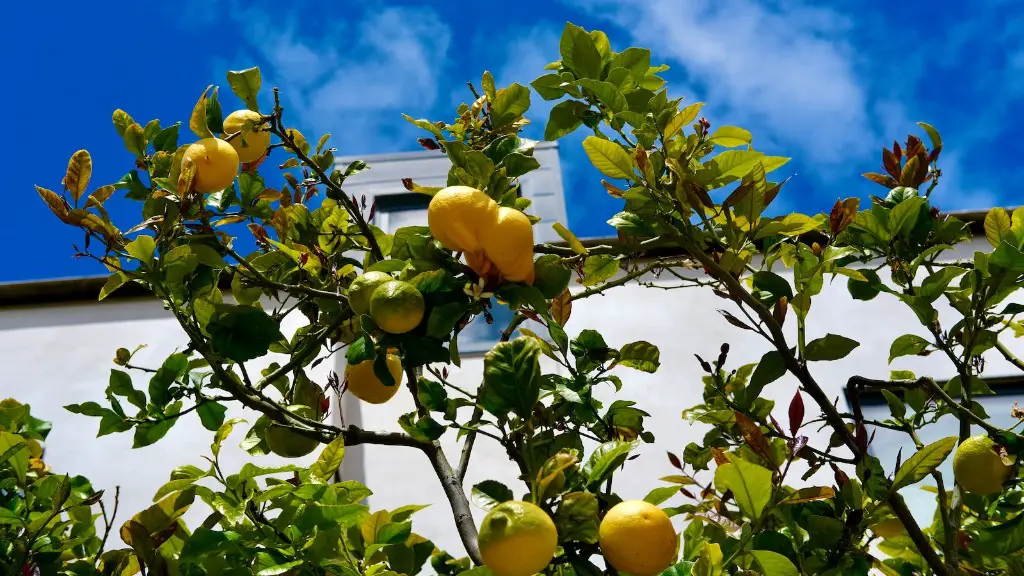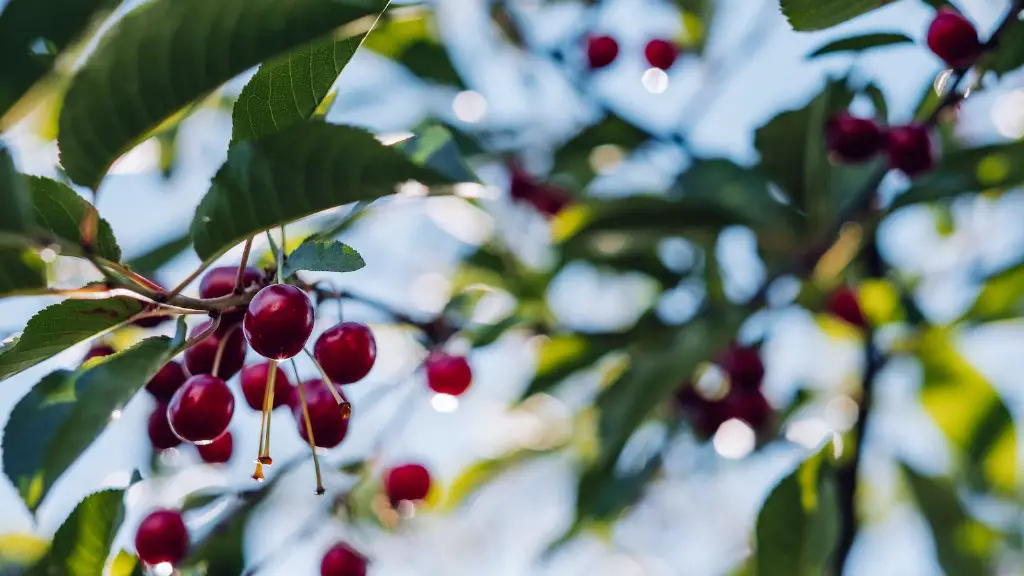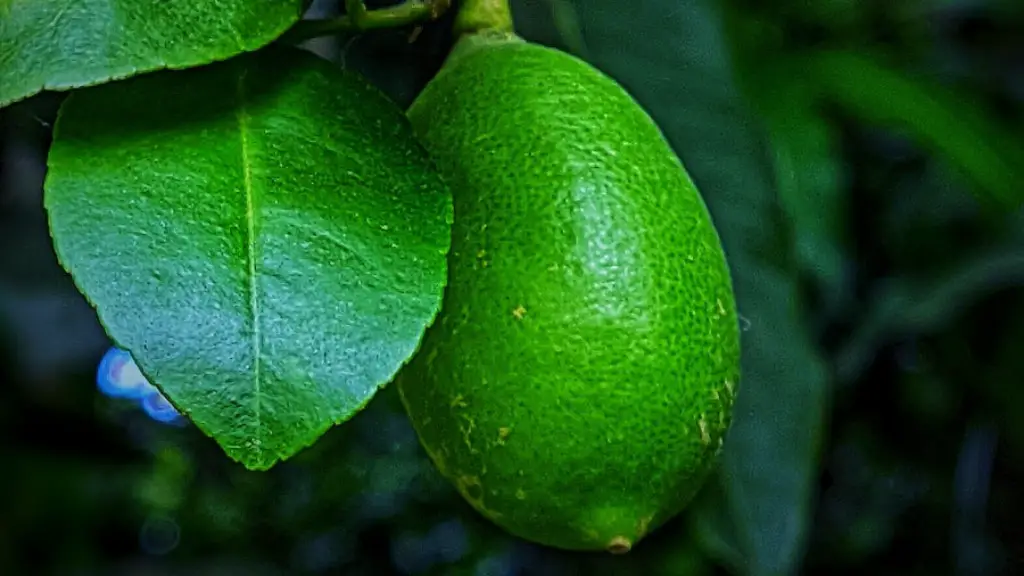Lemon trees are evergreen plants that can survive and fruit for many years, even decades. The exact lifespan of a lemon tree depends on a few factors, including climate, location, and any disease or pest issues it may encounter. Generally, lemon trees can live up to 25 years in optimal conditions, but some trees may even survive more than 100 years. The oldest cultivated lemon tree is thought to be over 300 years old and is still living in Italy.
Lemon trees grow best in warm climates, though they can tolerate temperatures down to 28°F (-2°C). They can also tolerate a wide range of soil types, but prefer well-drained soil. The amount of sunlight a lemon tree receives and the number of hours it spends dormant will affect how long it can survive. A tree that spends too much of its time dormant and doesn’t get enough sun is more likely to die earlier.
In terms of maintenance, lemon trees need regular watering and fertilizer, especially when they first get planted. Ideally, a lemon tree should get 1-2 inches (2.5-5 cm) of water every week. Pruning is also important for maintaining fruit production, as is regularly inspecting the tree for signs of diseases and pests. A healthy lemon tree should produce abundant fruit for years and years.
Lemon trees can also be propagated from cuttings or air layering, allowing the tree to live even longer. These methods allow the tree to produce multiple identical trees from the same genetic stock, all with the same long lifespan.
Overall, the exact lifespan of a lemon tree can’t be definitively determined, as it depends on many external factors. However, it’s safe to say that with good care and a favorable climate, a lemon tree can easily survive for 25 years or even longer.
Growing Conditions of the Lemon Tree
The growing conditions of a lemon tree will play a major role in its lifespan. Lemon trees require full sun to produce good amounts of fruit, and a warm climate to thrive. They are tolerant of heat and drought, but require at least 1-2 inches (2.5-5 cm) of water per week to stay healthy. The soil should be well-draining, as they can’t tolerate soggy conditions.
Lemon trees also need to be planted in an area with plenty of air circulation, as stagnant air can quickly cause pest and disease issues. Regular pruning and inspecting for pests is also important for maintaining a healthy lemon tree and ensuring a long lifespan.
If conditions are favorable, lemon trees can survive for many years and still produce a good amount of fruit. With careful maintenance, a healthy lemon tree can easily produce abundant fruit for 25 years or more.
Disease and Pest Control for the Lemon Tree
Despite the natural immunity lemon trees have to drought and extreme temperatures, they are susceptible to a range of pests and diseases. Without good pest and disease control, a lemon tree will struggle to survive and may not make it to its full potential lifespan.
Lemon trees are particularly susceptible to root rot. This is due to their need for well-draining soil, as any standing water can lead to root rot. Signs of root rot include yellowing leaves, stunted growth, and lack of fruiting. To prevent this disease, make sure the soil is always well aerated and water regularly. Adding organic compost to the soil will also help improve drainage.
Another common pest that affects lemon trees is the Colorado potato beetle. These beetles feed on the foliage of the tree and can quickly strip it of its leaves if not controlled. To prevent infestation, maintain good sanitation and inspect for beetles regularly. If the tree is already infested, use a insecticide to get rid of the beetles.
By maintaining good disease and pest control, lemon trees can live for many years and still produce quality fruit. Taking the proper steps to control pests and diseases will ensure the tree lives up to its full potential.
Lemon Tree Fertilization
Fertilizer is another important aspect of caring for a lemon tree that can play a major role in its lifespan. Without regular fertilization, a lemon tree won’t be able to produce healthy flowers and fruits, and it won’t be able to survive as long.
The best fertilizers for lemon trees are organic fertilizers, such as compost and bone meal. These organic fertilizers offer a slow-release form of nutrition that will help the tree stay healthy for a long time. Apply the fertilizer once or twice a year to ensure the tree gets all the nutrients it needs.
If regular fertilization is not practiced, a lemon tree won’t last as long and won’t be able to produce quality fruit. By adding the proper fertilizer to the soil, a lemon tree can live up to its full potential and produce quality fruit for many years.
Dormancy and Sunlight for the Lemon Tree
During the winter season when temperatures drop, lemon trees enter a state of dormancy to conserve energy. Too much of a consistent state of dormancy however, can reduce the tree’s lifespan, as without enough sunlight a tree won’t be able to produce healthy fruit and flowers, and won’t have the vitality it needs to survive.
To keep a lemon tree out of dormancy, it needs plenty of sunlight. A tree that is properly situated in an area with full sun for the majority of the day will survive better and last longer than one that is in a shady area. Keeping the tree in a sunny area can also help reduce the chances of pest and disease issues.
Though a lemon tree can survive in areas with partial sun and shade, it won’t be able to produce as much fruit, and won’t last as long. For a lemon tree to truly thrive and survive for multiple decades, it should be planted in a sunny area and should get 8-10 hours of direct sunlight per day.
Propagation of the Lemon Tree
Propagation is a technique that can be used to extend the lifespan of a lemon tree. Through propagation, a single lemon tree can produce multiple identical plants from the same genetic stock. This way, as the original tree begins to age, the propagated plants can take its place and continue producing fruit.
Propagation can be done through cuttings or air layering. Taking cuttings is a simpler and faster method, as it only takes a few months for the cuttings to develop roots. Air layering is a more complicated method, but it’s more reliable and can produce larger and more vigorous plants.
Propagation is a great way to extend the life of a lemon tree and produce more fruit. The more propagated plants a tree has, the longer it can produce fruit and survive.



